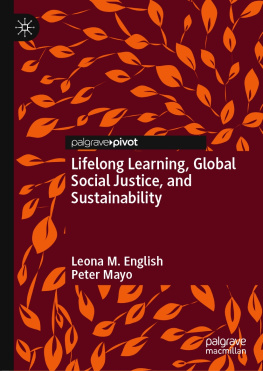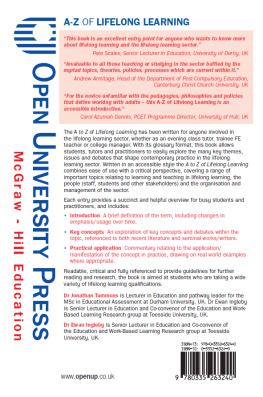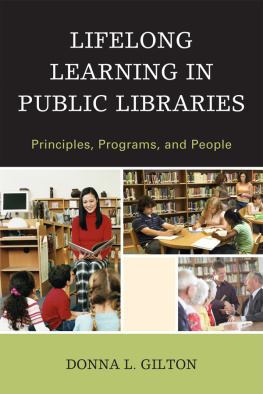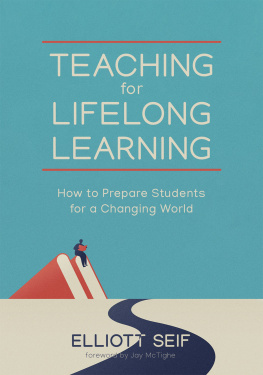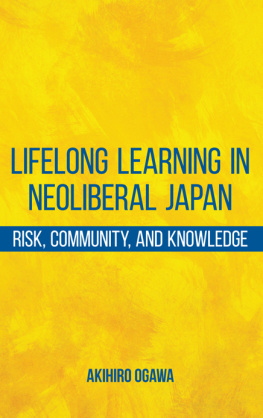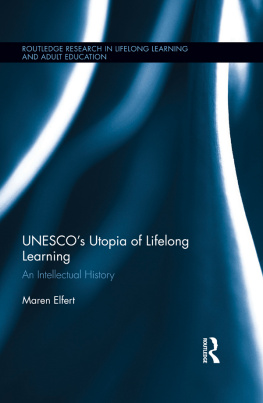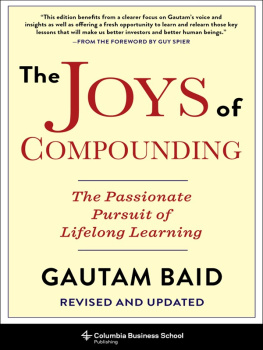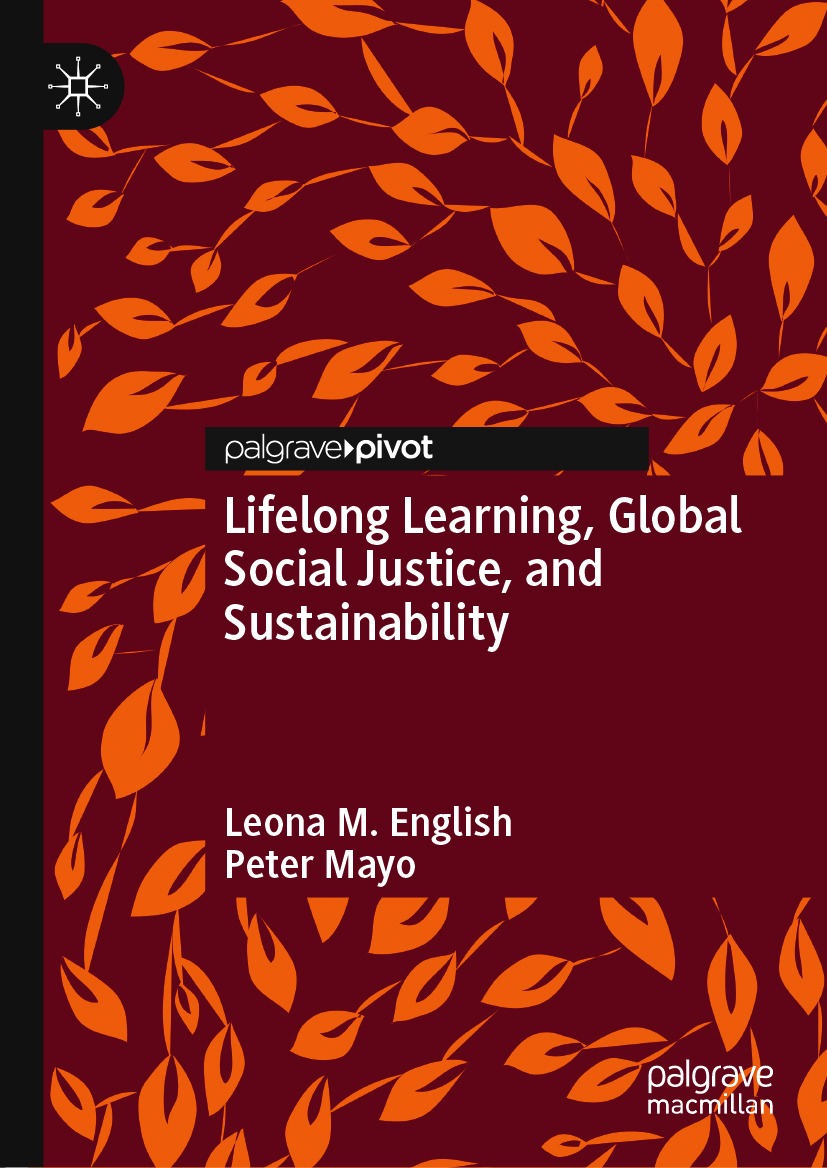Leona M. English and Peter Mayo
Lifelong Learning, Global Social Justice, and Sustainability
1st ed. 2021

Logo of the publisher
Leona M. English
Department of Adult Education, St. Francis Xavier University, Antigonish, NS, Canada
Peter Mayo
Faculty of Education, University of Malta, Msida, Malta
ISBN 978-3-030-65777-2 e-ISBN 978-3-030-65778-9
https://doi.org/10.1007/978-3-030-65778-9
The Editor(s) (if applicable) and The Author(s), under exclusive license to Springer Nature Switzerland AG 2021
This work is subject to copyright. All rights are solely and exclusively licensed by the Publisher, whether the whole or part of the material is concerned, specifically the rights of translation, reprinting, reuse of illustrations, recitation, broadcasting, reproduction on microfilms or in any other physical way, and transmission or information storage and retrieval, electronic adaptation, computer software, or by similar or dissimilar methodology now known or hereafter developed.
The use of general descriptive names, registered names, trademarks, service marks, etc. in this publication does not imply, even in the absence of a specific statement, that such names are exempt from the relevant protective laws and regulations and therefore free for general use.
The publisher, the authors and the editors are safe to assume that the advice and information in this book are believed to be true and accurate at the date of publication. Neither the publisher nor the authors or the editors give a warranty, expressed or implied, with respect to the material contained herein or for any errors or omissions that may have been made. The publisher remains neutral with regard to jurisdictional claims in published maps and institutional affiliations.
Cover illustration: Melisa Hasan
This Palgrave Macmillan imprint is published by the registered company Springer Nature Switzerland AG
The registered company address is: Gewerbestrasse 11, 6330 Cham, Switzerland
This book provides a fascinating account of the emergence of current concept of lifelong learning from its origins in UNESCOs notion of Lifelong Education and as subsequently transformed through the work of the OECD and the European Commission. What was originally an expansive and essentially humanist idea, the authors argue, mutated into a narrower and more instrumentalist concept with pervasive influence on global education policy. This critical account is distinguished by giving due attention to the meanings of lifelong learning in the Global South and makes a forceful case for a new vision of the concept geared towards a global citizenship. It is written in an accessible style and is likely to resonate with a wide audience of adult educators.
Andy Green, Professor of Lifelong Learning, University College London, UK
This excellent study reconnects us with the multidimensional theory and praxis of lifelong learning: a book that lifts the spirits in a time of crisis.
Maren Elfert, Lecturer in Education and Society, Kings College London, UK
This book is an important and wide-ranging critical exposition of the prevalent contemporary neo-liberal discourse of lifelong learning in the EU and the Western world in general. It narrates the appropriation of the UNESCO-based humanist agenda of lifelong education in the 1970s and 1980s by an agenda intended purely to serve the ambitions of economic competitiveness and the labour market. In this context it can be read as a passionate appeal to progressive educators in the contemporary world to serve the true purpose of educationlearning to be. As such it is as much a must read book for them as for scholars.
Kenneth Wain, Professor of Education, University of Malta, and author of The Learning Society in a Postmodern World (2004)
In memory of Anthony Mayo (19612019) and Ted English (19522019)
Acknowledgments
This book was written during 2020 when the world was dealing with the aftermath of Brexit, the turmoil of Trump, the continued effects of mass migration, and the panic of Covid. Yet, many global actors were working persistently to facilitate and cultivate lifelong learning strategies, theories, and policies, all in an effort to contribute to a more robust civil society. We dedicate this book to those who continue in the face of adversity and who really believe, along with Irish poet, Derek Mahon that everything is going to be alright.
Contents
The Author(s), under exclusive license to Springer Nature Switzerland AG 2021
L. M. English, P. Mayo Lifelong Learning, Global Social Justice, and Sustainability https://doi.org/10.1007/978-3-030-65778-9_1
1. Introduction Lifelong Learning: The Serpent Beneath the Innocent Flower?
Leona M. English
(1)
Department of Adult Education, St. Francis Xavier University, Antigonish, NS, Canada
(2)
Faculty of Education, University of Malta, Msida, Malta
Abstract
This chapter introduces the topic of Lifelong Learning/Education giving prominence to people and movements who advocated education and learning as a lifelong process. It is argued that although the concept of Lifelong Learning seems a harmless concept, this cannot be further from the truth. It has been twisted in such a way that it reduces learning to a set of narrow competences suited to a Neoliberal economy.
Keywords
Innocence Insidiousness Social purpose Reductionism Popular education
Lady Macbeth urges her husband Macbeth to dissemble in Shakespeares eponymous Scottish play: Look like the innocent flower but be the serpent under it ( Macbeth , Act 1, Sc.5, l. 6465).
This book addresses one of the most pervasive concepts in current educational discourse: Lifelong Learning. This concept is more commonly used in Europe than the Americas where, in the Southern cone and the rest of Latin America, the terms Educacin de jvenes y adultos in Spanish and Educao de Jovens e Adultos in Brazilian Portuguese (education of youth and adults ) are preferred. The story is different in Europe where lifelong learning is used interchangeably with different sectors of education, most notably in reference to the education of adults and even older adults. In North America, the term is more likely to be adult education or occasionally, learning across the lifespan.
Of course, the term lifelong learning looks all so innocent, so straightforward, bordering on stating the obvious. It looks like a rallying wishy washy call to be inclusive of all persons. And indeed it might well prove to be. One of us vividly recalls a tte--tte with a high-ranking university official during a reception at the end of a book launch in 2007. He said something to this effect: Can anyone disagree with lifelong learning? No room for discord here? The occasion warranted a diplomatic silence with the mere utterance of a hmmm. A more elaborate retort would have been: it depends on ones interpretation. As critical educators, we are wary of terms that appear disarmingly innocent when they serve a hegemonic purpose. Depending on ones perspective, they might well, in the scheming Lady Macbeths words, look like the innocent flower but be the serpent under it.

